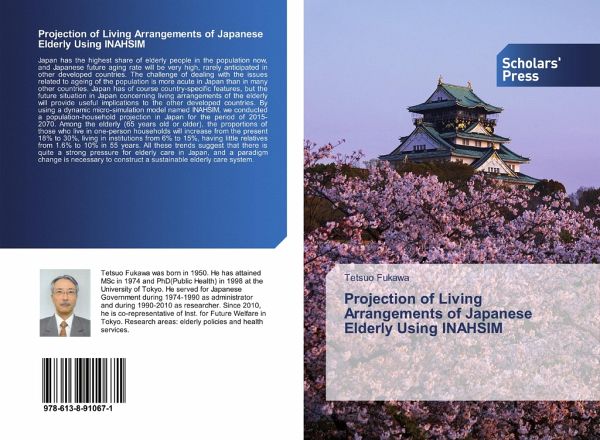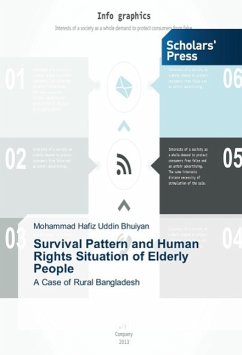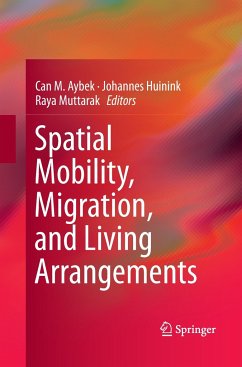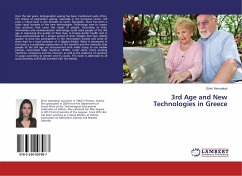
Projection of Living Arrangements of Japanese Elderly Using INAHSIM
Versandkostenfrei!
Versandfertig in 6-10 Tagen
30,99 €
inkl. MwSt.

PAYBACK Punkte
15 °P sammeln!
Japan has the highest share of elderly people in the population now, and Japanese future aging rate will be very high, rarely anticipated in other developed countries. The challenge of dealing with the issues related to ageing of the population is more acute in Japan than in many other countries. Japan has of course country-specific features, but the future situation in Japan concerning living arrangements of the elderly will provide useful implications to the other developed countries. By using a dynamic micro-simulation model named INAHSIM, we conducted a population-household projection in J...
Japan has the highest share of elderly people in the population now, and Japanese future aging rate will be very high, rarely anticipated in other developed countries. The challenge of dealing with the issues related to ageing of the population is more acute in Japan than in many other countries. Japan has of course country-specific features, but the future situation in Japan concerning living arrangements of the elderly will provide useful implications to the other developed countries. By using a dynamic micro-simulation model named INAHSIM, we conducted a population-household projection in Japan for the period of 2015-2070. Among the elderly (65 years old or older), the proportions of those who live in one-person households will increase from the present 18% to 30%, living in institutions from 6% to 15%, having little relatives from 1.6% to 10% in 55 years. All these trends suggest that there is quite a strong pressure for elderly care in Japan, and a paradigm change is necessary to construct a sustainable elderly care system.












